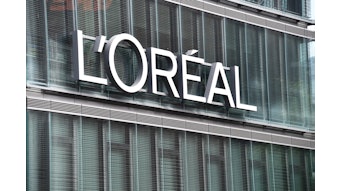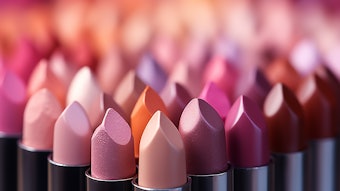Indian consumers’ love of natural-positioned beauty products has proven to be a boon for a number of Asian, European and Indian companies enduring the current economic climate. During the first quarter of 2009, the market has seen the launch of three new nature-based beauty brands—positioned in the Indian market as home-spa brands.
Greece-based Fresh Line launched handmade soaps, masks, body washes and moisturizing lotions that are paraben- and mineral oil-free. In addition to products, Harnn, a Thai spa brand, and Nature’s Co, an Indian brand, have opened retail doors in New Delhi. Harnn already operates spas globally, but made the strategic decision to enter the Indian market through first introducing its products.
Additional brands have been launched in Mumbai, and almost all the newly launched brands claim they’ve been picked up for retail in India due to their herbal or natural positioning. Established Indian natural brands, such as Aroma Magic, have demonstrated steady growth during the late 2008/early 2009 period. In fact, Aroma Magic claims to be growing faster than the market.
Skin Care Market Grows
While consumers may be reluctant to buy expensive clothes, accessories or even makeup, skin care and personal care products are showing steady growth in India. According to a recent AC Nielsen study, the fast moving consumer goods market has shown a steady growth of nearly 20% during the last two quarters of 2008. Interestingly, the skin care product growth rate has jumped from just 5% to 30% in the same time period. This is due, in part, to activity in rural markets where there is an increased awareness and an underlying demand for beauty products.
Brands Focus on Specialized Hair Care
Typically, it is a sign of market maturity when brands begin launching products that offer a higher degree of care and involve regimental use, and that is becoming evident in the Indian hair care market. Brands such as L’Oréal, Kerastase, Pantene, Garnier, Dove and Sunsilk have all launched advanced versions of their basic shampoos.
The brands have undertaken a strategy to launch targeted products that address breakage and hair loss—a strategy that fits well with the needs of the Indian market. Since Indian women love to sport medium to long hair, hair fall (i.e., how hair lies naturally) and breakage are major issues with them, and they are now looking beyond shampoos to retain their manes.
In addition, consumer awareness and usage patterns have changed drastically over the last two years. Previously, hair care for both Indian women and men meant oil massage and shampoo, but now more and more users have started adding conditioners to their hair care regimen. And as chemical treatments for hair increase, so does the need for specialized products. Recently Dove and Pantene both launched home care products that included a hair mask and leave-in serum, in addition to shampoo and conditioner. While women in India are still wary of using too much styling product on their hair, they do like to use hair serums as a way to tame frizz and improve shine. In addition to multinationals, Indian brands—Dabur and Habibs Hair Cosmetics, notably—have also launched hair serums that meet this changing consumer desire.
The Body Shop Slashes Prices for Indian Consumers
Because the Indian market remains one of the fastest growing, The Body Shop, an already popular brand in India, is gearing up to take advantage of the opportunity to grow a market that’s been relatively immune to the global downturn. The company has announced price reductions of approximately 20% in response to a buying slowdown in the market, as well as consumer feedback, and is aggressive about increasing its footprint across the country. The Body Shop is now focusing on its presence in the western part of the country, especially Mumbai. In late 2009, the company will shift its focus toward the southern part of the country by opening stores in Chennai and Hyderabad.
Despite the price cuts, the company insists that it will retain its upmarket tag in the region, and will simply make it easier on the pocket for its buyers. The price cut strategy is also a way to pull newer customers into its stores.
Nivea Bullish on Indian Market
After making big news with its men’s skin-whitening range of products for the Indian market, Nivea India is now tapping into the growing beauty awareness among Indian women. In a recent report by AC Nielsen, Nivea’s skin-whitening range for women, Nivea Visage Sparkling Glow, has moved up in market share and is offering competition to established players such as Garnier, Ponds and Olay. The skin-whitening market currently is the fastest growing market segment, at an annual growth rate of 85%.
Basic Nivea products had been available in the market through Indian distributor JL Morrison, but when the partnership broke, Nivea lost some share until its direct entry in 2007. Now, Nivea is focused on creating innovative product categories to strengthen its competitive position. In addition to standard ranges of creams and lotions, the brand plans to come up with creams that will also double as face packs—as well as lip care and tint products for young consumers uninitiated in makeup.
Big Business for Indian Day Spas
Consumers’ current reluctance to spend on big vacations is translating into good business for the Indian spa industry. While hotels brace for a drop in room bookings, their spas, as well as stand-alone spas, are preparing to handle more clients who are finding spa services to be, in general, cost-effective alternatives to vacations. According to industry watchers, consumers may curtail their buying decisions for luxury goods, big ticket items and vacations, but personal grooming and wellness still remain important for them.
There have been indications that spas have gained 15–20% in a recent three to four month period, and there are expectations of further gains. Hotels, understanding the gains in day spa business, have begun to promote spa packages as weekend destinations. Most focus on the “stress busting during tough times” factor when hard-selling their packages. This, too, translates into opportunities for international spa brands entering the Indian market. As spas aspire to offer innovative services and products to their customers, they are constantly looking into the international market.
Priyanka Bhattacharya is a writer and journalist covering the beauty, health and wellness industries in India. She is the contributing beauty features writer for several leading Indian women’s magazines.










